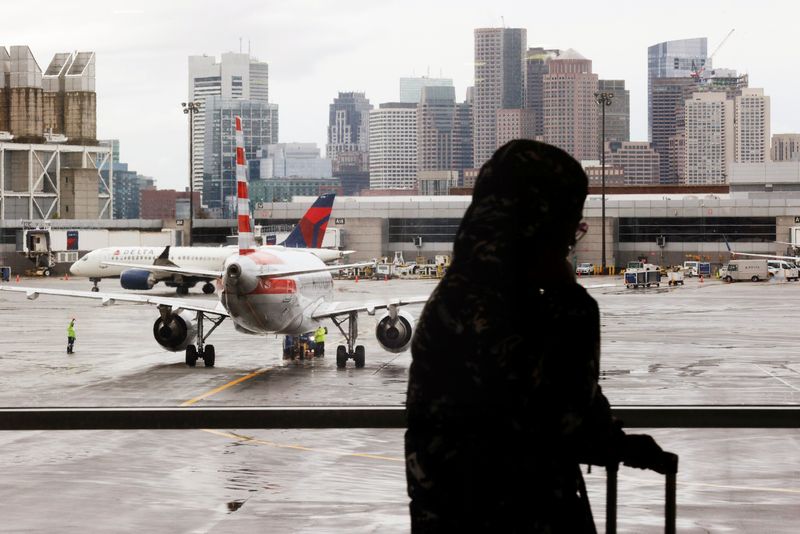By David Shepardson
WASHINGTON (Reuters) - U.S. passenger airline flight cancellations in July fell to 1.8% from 3.1% in June, although air travel service complaints rose 16.5%, the U.S. Transportation Department said on Thursday.
The Transportation Department has been pressing airlines to improve service and boost staffing as summer travel woes snarled tens of thousands of flights. Airlines say Federal Aviation Administration (FAA) air traffic control staffing has been a significant factor in cancellations and delays.
The Transportation Department said complaints in July were more than 260% above pre-pandemic levels.
"The difference between a normal level of cancellation -- it is never going to be zero with weather and stuff -- a normal level is between 1 and 2%," Transportation Secretary Pete Buttigieg said last week. "If it's 3% we feel it, it's quite bad. If it is 4% that's when you start seeing words like meltdown or chaos or hell in headlines,"
The union representing federal air traffic controllers says the FAA needs to do a better job of ensuring adequate staffing.
The National Air Traffic Controllers Association said the FAA had over 15,000 total controllers in 2011, including over 11,750 fully certified controllers, but said in July that in 2022 "there were more than 1,000 fewer (certified controllers) and 1,500 fewer total controllers on-board." The FAA says it is on track to hire 1,000 controllers this year.
This month, Democratic U.S. Senator Jeanne Shaheen asked the FAA to report additional air traffic control staffing data to Congress, acknowledging that airline staffing issues were impacting flights but saying that "understaffing at critical ATC facilities has also played a role."
Last week, United Airlines Chief Executive Scott Kirby (NYSE:KEX) said air traffic control shortages were "by far ... the number one issue" impacting traffic.
"When you have air traffic control close a center down or close a region it leads to hundreds of delays and cancellations," Kirby said. "When we just point the finger at airlines, when that's not the biggest issue or the second biggest or the third biggest or the fourth biggest, we can't fix it."

Kirby said the aviation industry must push for funding to ensure FAA has more staff.
The FAA in response pointed to data that showed air carrier delays outpaced any other factor in July. "Airlines should focus on restoring customers’ faith by being transparent about the cause of interruptions and by delivering what they promise," the FAA said.